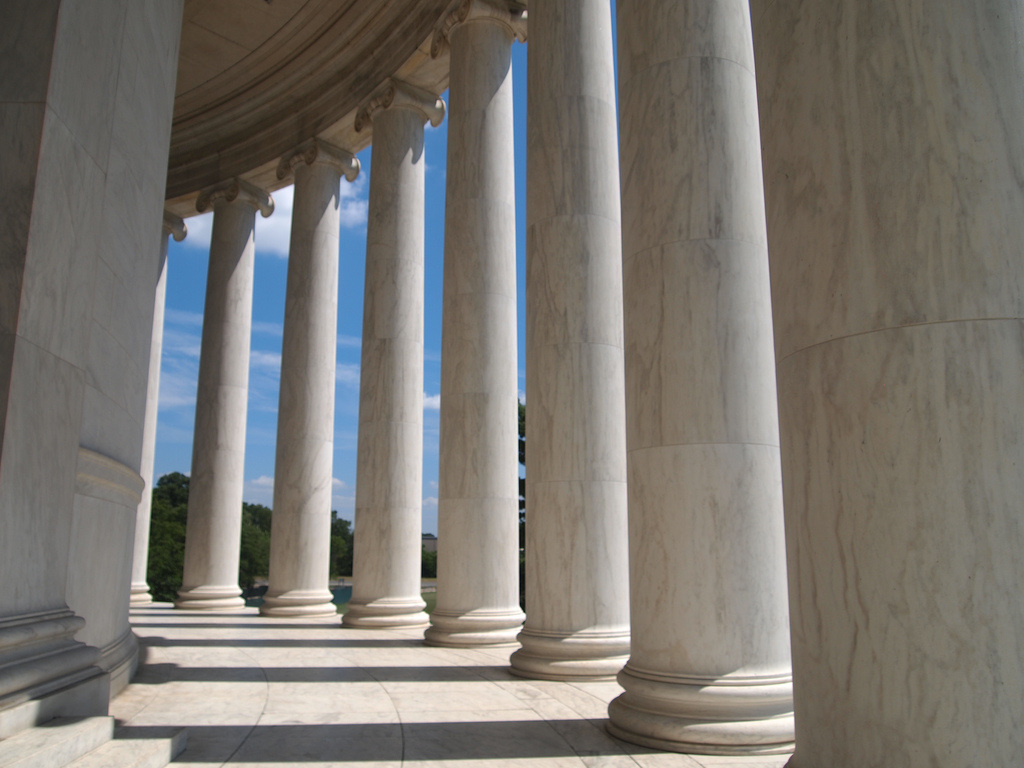Between Stockholm Syndrome and Lima Syndrome
Part 8: Correlation between Religion and Morality: Illusion or Reality?

As far as the positive correlation between religion and morality is concerned, it is instructive to compare four past rulers of Southeast Asian countries. Ferdinand Marcos, a practicing Catholic, ruled the Philippines from 1965 to 1986. Suharto, a practicing Muslim, ruled Indonesia from 1967 to 1998. Lee Kuan Yew, a self-proclaimed non-believer, ruled Singapore from 1959 to 1990. Thaksin Shinawatra, a practicing Buddhist, ruled Thailand from 2001 to 2006. Three among these rulers were forced to resign and eventually convicted of corruption, though they never served time. (Obviously, proceed of corruption come in handy to retain the best lawyers in town or to live lavishly in exile.) One ruler is exceptionally known as "Mr. Clean" however. Guess who was "Mr. Clean"? Everyone knows the answer. Let me stress again that the problem is not with the beliefs themselves—whether Catholicism, Islam, Buddhism, or Atheism. The problem is with the misplaced belief as if there is a positive correlation between religion and morality.
Am I saying that religion is totally useless? No, I'm not. Institutionally, religion has comforted the distressed, empowered the oppressed, and advocated for the poor. The significance of humanitarian aid, food banks and food drive donations organized by churches, mosques, and temples cannot be ignored. In the 1960s, without the empowerment that was galvanized by the Black Church, Dr. Martin Luther King would not have achieved success in the Civil Rights Movement. In Latin America, Bishop Oscar Romero (1917-1980) of El Salvador spoke out against poverty, social injustice, assassinations and torture. While offering Mass in 1980, he was assassinated by a right-wing death squad who tortured and killed thousands of civilians before and during the Salvadoran Civil War. In India, Mother Teresa's charity work has helped those with HIV/AIDS, leprosy and tuberculosis, abandoned children, and orphans.
However the notion that on a personal level there is a God watching each of us individually to prevent us from committing evil—thus it's his fault if we still do evil—is a ludicrous (yet convenient) attempt to avoid personal responsibility. A news clip reported that "(a) band of criminals has disrupted the government by raiding the treasury. Their gang rule has made money so scarce that many farm hands are out of work and few farmers can afford to hire them." Was this from a newspaper in 1850? No. Or 1950? No. In fact, it was published on an Egyptian papyrus in the city of Memphis, in the year of recession of 3,068 BCE.
The more things change. . .
While corruption has been committed as early as 5,000 years ago, innumerable religions have claimed their creed are the best to affect morality. Whether the objects of worship are Amun or Horus or Bastet (ancient Egyptians), a burning bush, the forest (Central African pygmies), a dream (Kalahari Desert bushmen), Duke of Edinburgh, Prince Philip, Queen Elizabeth II's consort (Yaohnanen tribe on the southern island of Tanna in Vanuatu), God or Allah, the insatiable thirst to worship something has always been around. How do we reconcile the tendency to commit evil with the universal desire to worship? Is the correlation between religion and morality an illusion or a reality?
American biologist and researcher E.O. Wilson maintains that there is some biological basis for religiosity. He argues that "theological over-beliefs offer consolation in the face of adversity, and that these religious over-beliefs provide a functional means of adaptation." In Why We Believe What We Believe (2006), based on brain scans of subjects as they pray and meditate, Andrew Newberg (professor of radiology, psychiatry, and religious studies) and Mark Waldman (associate fellow at the Center of Spirituality and the Mind) even argue that there is an inherent biological need for meaning, spirituality and truth. For many, that need is fulfilled by a religion. "Man shall not live on bread alone …"
By now, it should be crystal clear that I'm not in any position to bash any belief system or religion. After all, I was raised in a Roman Catholic household by a Catholic father and Confucian mother, sent to all-boys Jesuit middle- and high-schools, and once even aspired to become a priest (for heaven's sake)! I was born in Indonesia—a country with the largest Muslim population in the world—so I have interacted with quite a few Muslim friends. (That's why I have never understood why American Conservative Christians always demonize Obama by portraying him as a Muslim, because I have experienced first hand that there are good and decent Muslims as there are bad and callous Christians. Even if Obama is a Muslim—for the record he is not—so what?)
In spite of all the benefits of religion as outlined in Part 6, it's important not to lose context and perspective and be mindful about Stockholm Syndrome encroaching our beliefs. "I" may think that "my" religion is the greatest, sure!, but throughout the ages religions have come and gone, and the majority of organized religions derive from a cult. A cult evolves into a sect, then a sect evolves into a religion, before it splits again into various denominations. For the majority of beliefs, in order to classify one, just apply a formula introduced by Leo Pfeffer (1910-1993): "(I)f you believe in it, it is a religion or perhaps 'the' religion; if you do not care one way or another about it, it is a sect; but if you fear and hate it, it is a cult." This may explain why the Church of Scientology is so controversial.
[To be continued.]
Johannes Tan, Indonesian Translator & Conference Interpreter
Am I saying that religion is totally useless? No, I'm not. Institutionally, religion has comforted the distressed, empowered the oppressed, and advocated for the poor. The significance of humanitarian aid, food banks and food drive donations organized by churches, mosques, and temples cannot be ignored. In the 1960s, without the empowerment that was galvanized by the Black Church, Dr. Martin Luther King would not have achieved success in the Civil Rights Movement. In Latin America, Bishop Oscar Romero (1917-1980) of El Salvador spoke out against poverty, social injustice, assassinations and torture. While offering Mass in 1980, he was assassinated by a right-wing death squad who tortured and killed thousands of civilians before and during the Salvadoran Civil War. In India, Mother Teresa's charity work has helped those with HIV/AIDS, leprosy and tuberculosis, abandoned children, and orphans.
However the notion that on a personal level there is a God watching each of us individually to prevent us from committing evil—thus it's his fault if we still do evil—is a ludicrous (yet convenient) attempt to avoid personal responsibility. A news clip reported that "(a) band of criminals has disrupted the government by raiding the treasury. Their gang rule has made money so scarce that many farm hands are out of work and few farmers can afford to hire them." Was this from a newspaper in 1850? No. Or 1950? No. In fact, it was published on an Egyptian papyrus in the city of Memphis, in the year of recession of 3,068 BCE.
The more things change. . .
While corruption has been committed as early as 5,000 years ago, innumerable religions have claimed their creed are the best to affect morality. Whether the objects of worship are Amun or Horus or Bastet (ancient Egyptians), a burning bush, the forest (Central African pygmies), a dream (Kalahari Desert bushmen), Duke of Edinburgh, Prince Philip, Queen Elizabeth II's consort (Yaohnanen tribe on the southern island of Tanna in Vanuatu), God or Allah, the insatiable thirst to worship something has always been around. How do we reconcile the tendency to commit evil with the universal desire to worship? Is the correlation between religion and morality an illusion or a reality?
American biologist and researcher E.O. Wilson maintains that there is some biological basis for religiosity. He argues that "theological over-beliefs offer consolation in the face of adversity, and that these religious over-beliefs provide a functional means of adaptation." In Why We Believe What We Believe (2006), based on brain scans of subjects as they pray and meditate, Andrew Newberg (professor of radiology, psychiatry, and religious studies) and Mark Waldman (associate fellow at the Center of Spirituality and the Mind) even argue that there is an inherent biological need for meaning, spirituality and truth. For many, that need is fulfilled by a religion. "Man shall not live on bread alone …"
By now, it should be crystal clear that I'm not in any position to bash any belief system or religion. After all, I was raised in a Roman Catholic household by a Catholic father and Confucian mother, sent to all-boys Jesuit middle- and high-schools, and once even aspired to become a priest (for heaven's sake)! I was born in Indonesia—a country with the largest Muslim population in the world—so I have interacted with quite a few Muslim friends. (That's why I have never understood why American Conservative Christians always demonize Obama by portraying him as a Muslim, because I have experienced first hand that there are good and decent Muslims as there are bad and callous Christians. Even if Obama is a Muslim—for the record he is not—so what?)
In spite of all the benefits of religion as outlined in Part 6, it's important not to lose context and perspective and be mindful about Stockholm Syndrome encroaching our beliefs. "I" may think that "my" religion is the greatest, sure!, but throughout the ages religions have come and gone, and the majority of organized religions derive from a cult. A cult evolves into a sect, then a sect evolves into a religion, before it splits again into various denominations. For the majority of beliefs, in order to classify one, just apply a formula introduced by Leo Pfeffer (1910-1993): "(I)f you believe in it, it is a religion or perhaps 'the' religion; if you do not care one way or another about it, it is a sect; but if you fear and hate it, it is a cult." This may explain why the Church of Scientology is so controversial.
[To be continued.]
Johannes Tan, Indonesian Translator & Conference Interpreter

 RSS Feed
RSS Feed